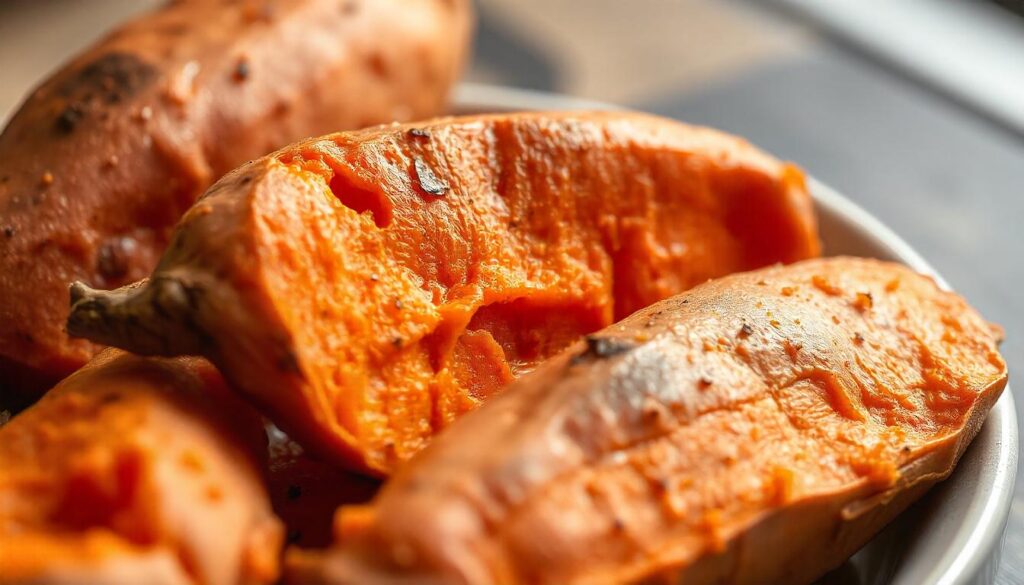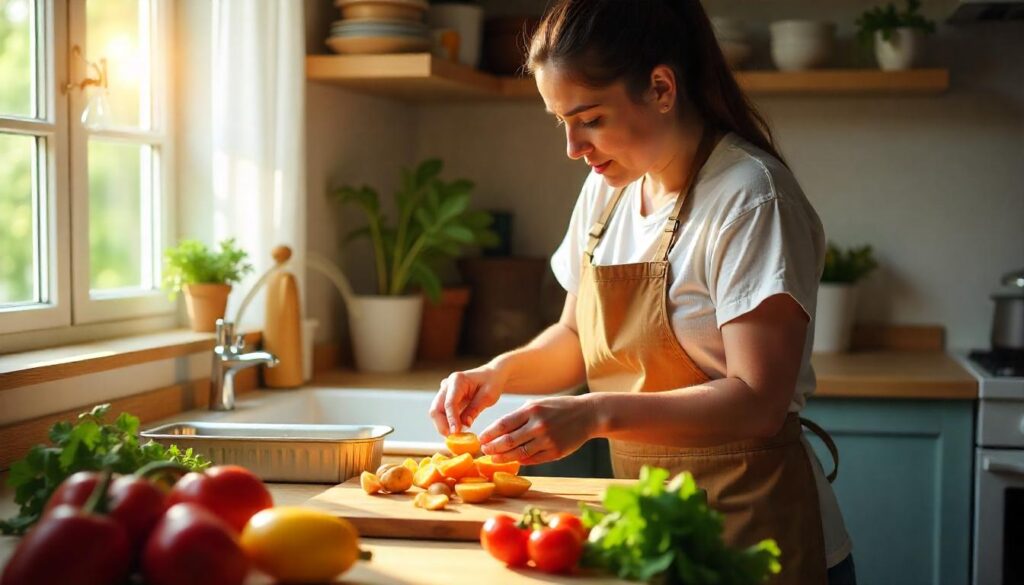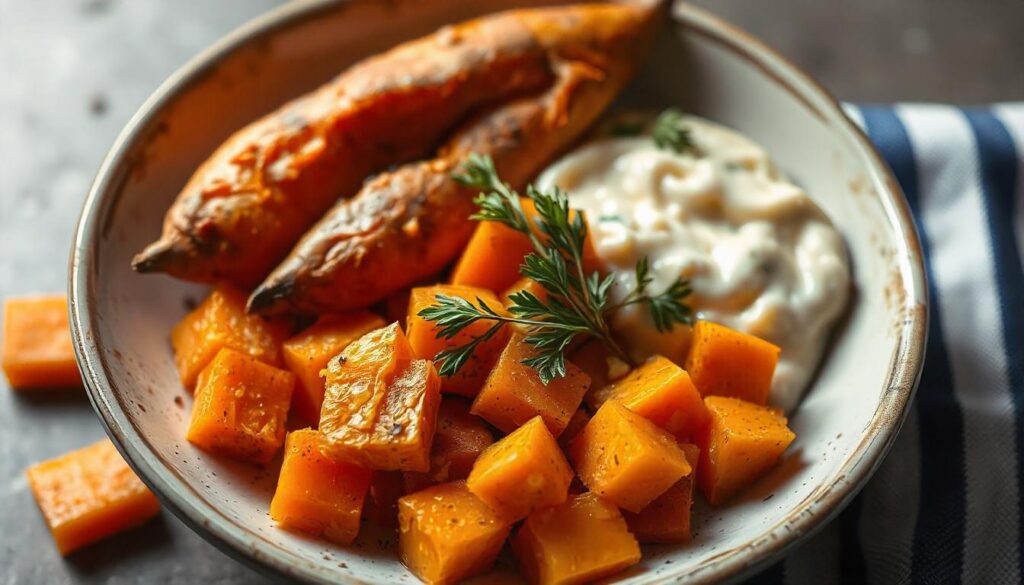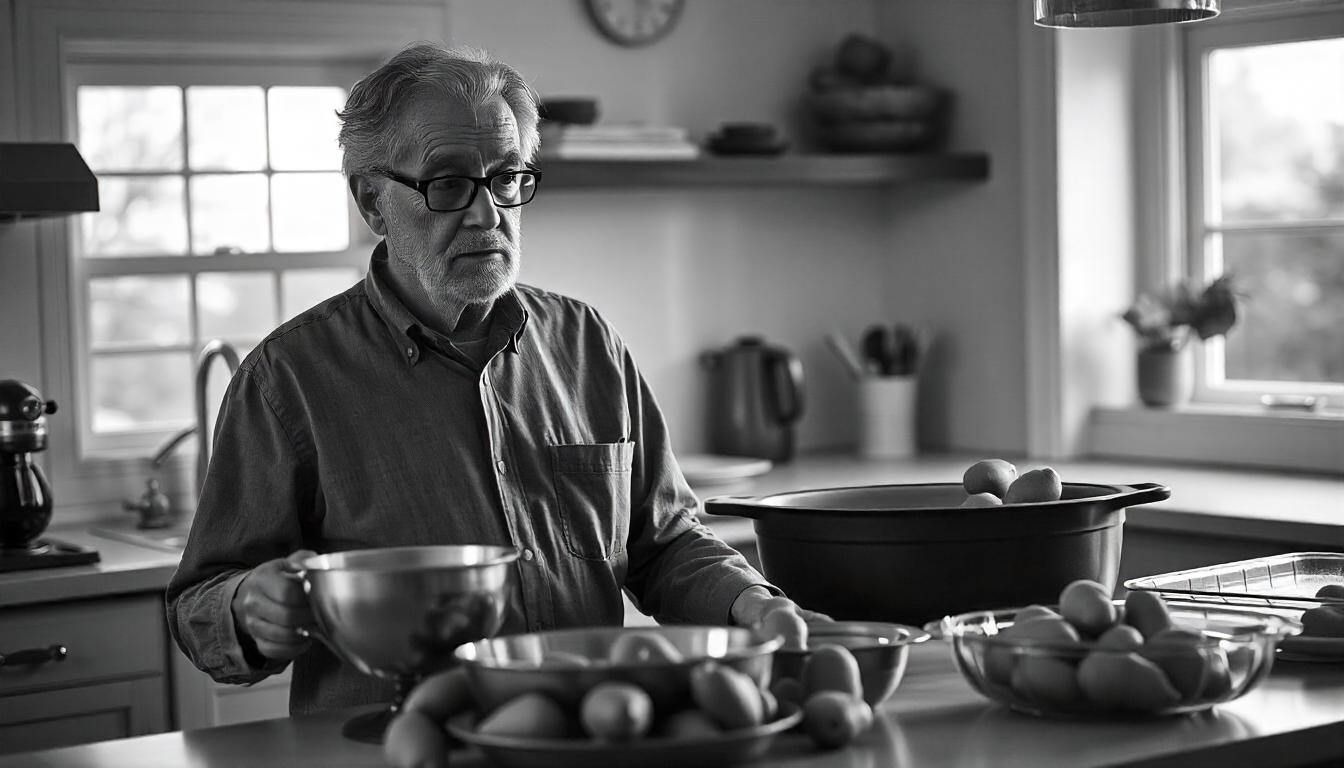Is It Better to Bake or Boil Sweet Potatoes for Casserole? Sweet potatoes are a beloved ingredient in many households, particularly when it comes to creating comforting casseroles. Their natural sweetness and creamy texture make them an ideal base for a variety of dishes. However, a crucial question often arises: Is it better to bake or boil sweet potatoes for a casserole? The answer is not straightforward, as both methods have their merits. In this comprehensive guide, we’ll explore the pros and cons of baking and boiling sweet potatoes, helping you make an informed decision for your next culinary creation.

Table of Contents
Why Does the Method Matter for Sweet Potato Casseroles?
Before diving into the specifics, it’s essential to understand why the cooking method matters so much. The way you prepare sweet potatoes can significantly impact their flavor, texture, and nutritional value. For instance, baking tends to enhance their natural sweetness, while boiling softens them for mashing. Additionally, each method offers unique advantages and drawbacks depending on your goals.
Transitioning to the cooking process, it’s worth noting that proper preparation is a crucial first step. If you’re considering whether peeling sweet potatoes is necessary, you might find helpful tips in this guide.
Baking Sweet Potatoes for Casserole: Pros and Cons
Baking is often celebrated for its ability to bring out the rich, caramelized flavors of sweet potatoes. This method involves cooking the potatoes in an oven at medium to high heat, typically wrapped in foil or placed on a baking sheet. Let’s take a closer look at the benefits and potential downsides.

Advantages of Baking Sweet Potatoes
- Enhanced Flavor
Baking allows the natural sugars in sweet potatoes to caramelize, creating a deeper, more complex taste. This is particularly beneficial in casseroles that emphasize sweetness and richness. - Nutrient Retention
Unlike boiling, which can leach water-soluble vitamins into the cooking water, baking helps preserve most of the nutrients. This makes baked sweet potatoes a healthier choice when nutritional value is a priority. - Firm Texture
Baking results in a firmer texture, making it ideal for casseroles that require sweet potatoes to hold their shape. This is especially true for layered dishes or casseroles with a crumbly topping.
Disadvantages of Baking Sweet Potatoes
- Time-Consuming
Baking can take anywhere from 45 to 60 minutes, depending on the size of the sweet potatoes. While the results are worth the wait, it may not be ideal if you’re short on time. - Energy-Intensive
Using an oven for an extended period can consume more energy compared to boiling. This is an important consideration if you’re looking for a quicker or more eco-friendly option.

For those exploring the versatility of sweet potatoes, try incorporating them into recipes like sweet potato cornbread for a delightful twist.
Boiling Sweet Potatoes for Casserole: Advantages and Disadvantages
Boiling sweet potatoes is a more straightforward and quicker method, often favored for its simplicity. In this approach, sweet potatoes are submerged in water and cooked on the stovetop until tender.
Why Boiling Sweet Potatoes Works for Creamy Casseroles
Advantages of Boiling Sweet Potatoes
- Time-Efficient
Boiling sweet potatoes typically takes only 15 to 20 minutes, making it an excellent choice for those in a hurry. - Creamy Texture
Boiling creates a soft, smooth texture, perfect for mashed sweet potatoes or casseroles where a creamy consistency is desired. - Minimal Preparation Required
This method doesn’t require preheating an oven or wrapping the potatoes, making it a hassle-free option for busy cooks.
Disadvantages of Boiling Sweet Potatoes
- Nutrient Loss
One significant downside of boiling is that water-soluble vitamins, such as vitamin C and B vitamins, can leach into the cooking water. While this may not drastically reduce the health benefits, it’s worth considering if nutrition is a priority. - Diluted Flavor
Boiling doesn’t caramelize the natural sugars in sweet potatoes, resulting in a milder flavor. This can be a drawback in casseroles that rely on the robust sweetness of baked potatoes.
For inspiration on using sweet potatoes in classic dishes, explore the recipe for Ruth Chris Sweet Potato Casserole, a fan favorite.
Baking vs. Boiling: Which Method Is Better for Sweet Potato Casseroles?
To better understand which method is right for your casserole, let’s compare baking and boiling based on critical factors.
Flavor Profile
- Baking: Intensifies the natural sweetness, making it ideal for casseroles that prioritize a bold, caramelized taste.
- Boiling: Produces a milder flavor that blends seamlessly with other ingredients.
Texture
- Baking: Creates a firm texture, perfect for layered dishes or casseroles requiring structure.
- Boiling: Yields a creamy consistency, ideal for mashed sweet potato casseroles.
Time and Energy
- Baking: Requires more time and energy but offers unparalleled depth of flavor.
- Boiling: A faster, more energy-efficient method, especially suitable for quick preparations.
Practical Tips for Preparing Sweet Potatoes for Casserole
Regardless of the cooking method you choose, these tips will help you achieve the best results:
- Baking: Wrap sweet potatoes in foil to retain moisture and bake at 400°F (200°C). This ensures even cooking and prevents dryness.
- Boiling: Use just enough water to cover the sweet potatoes and avoid overcooking to preserve texture and nutrients.
- Combining Methods: For the best of both worlds, consider combining baked and boiled sweet potatoes. This approach offers the richness of baking with the smooth texture of boiling.
How to Choose the Best Method for Your Recipe
When deciding between baking and boiling, consider the following:
- Recipe Requirements
If the recipe calls for a strong, caramelized flavor, baking is the way to go. For creamy dishes, boiling is often more suitable. - Time Constraints
Baking takes longer, so boiling might be more practical for tight schedules. - Nutritional Goals
If retaining vitamins and minerals is a priority, baking is the healthier option.
Frequently Asked Questions (FAQs)
1. Why does the cooking method matter for sweet potatoes?
The method affects the texture, flavor, and nutritional value of the sweet potatoes, significantly influencing the quality of your casserole.
2. Can you combine baking and boiling?
Absolutely! Combining these methods can create a balance of rich flavor and creamy texture.
3. Does boiling remove nutrients?
Yes, boiling can lead to nutrient loss, particularly water-soluble vitamins. To minimize this, use minimal water and avoid overcooking.
4. Why are baked sweet potatoes sweeter?
Baking caramelizes the natural sugars, enhancing their rich, sweet flavor.
Conclusion: The Verdict on Baking vs. Boiling Sweet Potatoes for Casserole
Deciding whether to bake or boil sweet potatoes for casserole ultimately depends on your recipe and preferences. Baking sweet potatoes brings out their natural sweetness, making it perfect for casseroles that require rich and bold flavors. For tips on preparation, check out whether you need to peel sweet potatoes before baking.
On the other hand, boiling sweet potatoes is ideal for creamy textures and quicker preparation. If you’re curious about other creative ways to use sweet potatoes, consider this guide on sweet potato cornbread for inspiration.

Both methods have their advantages, so experimenting with both can help you discover which works best for your dish. Whether you choose to bake or boil sweet potatoes for casserole, you can also explore classic recipes like the Ruth Chris Sweet Potato Casserole for new ideas to elevate your cooking.

